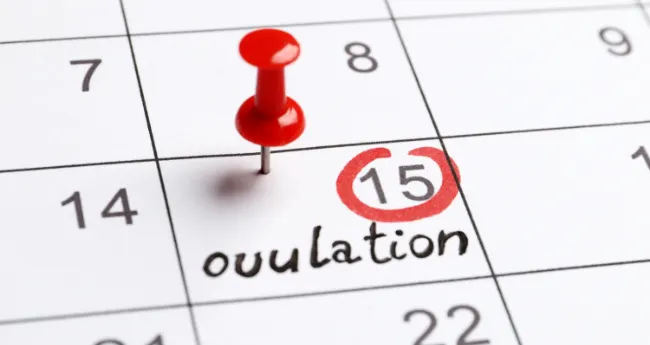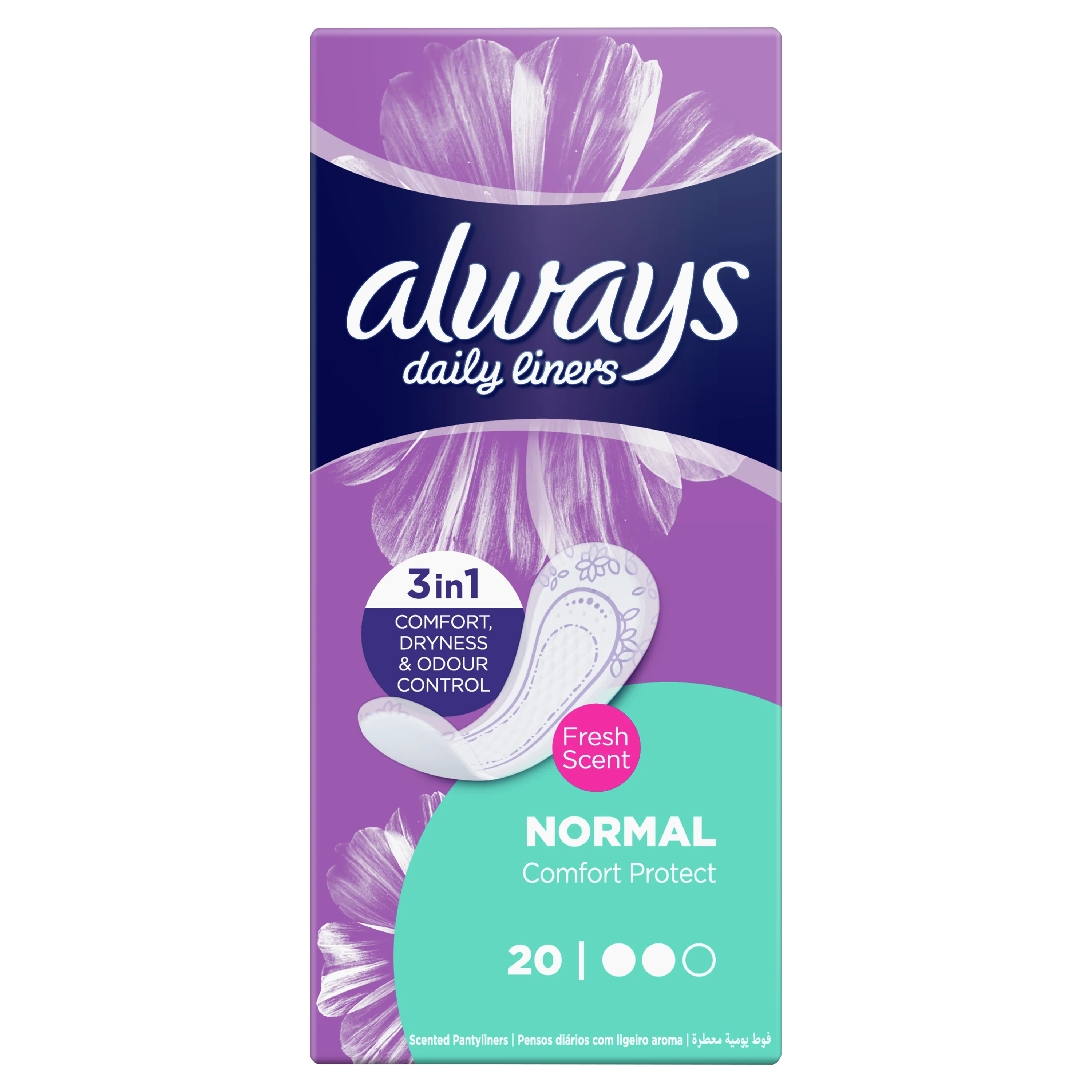Nausea during ovulation: Is it normal?

Whether you are trying to get pregnant or are being vigilant to prevent conception, ovulation is an important part of what you’re doing. Just like your period, the signs of ovulation differ and aren’t the same for all women. For instance, some women feel sick during ovulation, and wonder, ‘Am I pregnant?’ It can get especially tricky if you’re planning to conceive and feel nauseated during ovulation. Should you consider it as morning sickness, a sign or early pregnancy, or just nausea, an ovulation symptom? Let’s explore it further.
What is ovulation?
Ovulation is that phase in your menstrual cycle when your ovary releases a mature egg. This egg travels through the fallopian tube and remains there for around 12 to 24 hours. This is the fertile window when the egg can be fertilised. Typically, ovulation occurs around day 14 of a 28-day menstrual cycle and is accompanied by certain signs of ovulation that help you identify this phase. But this can vary to a great extent as the menstrual cycle lengths are different for every woman.
Is it normal to have nausea during ovulation?
Many women experience nausea before they get their periods, right around the time that they are ovulating. Hormonal changes during ovulation can also cause you to feel slightly nauseous. Not everyone experiences the same symptoms when ovulating. So, even though nausea might not be the most common sign, it’s certainly okay and not unusual.

Apart from nausea, there are a handful of other symptoms that you may experience when you’re ovulating. These include mild cramps, or lower abdominal pain, generally on either side and changes in cervical mucus. The changes in cervical mucus make vaginal discharge during ovulation slippery, clear and with a raw egg-white like consistency. Changes in mood is also a possibility.
To manage vaginal discharge during ovulation, you can use Always panty liners which are dermatologically tested and safe. Try the Always Comfort Protect panty liners which have innovatively discreet design that is flexible and reliable, so you can go about your daily activities freely. Its unique odour neutralising technology makes it comfortable for all day usage, helping you remain confident and secure all day.

Causes of nausea during ovulation
For those wondering how ovulation could trigger nausea, here are the top two causes:
1. Hormonal changes
Your body goes through many hormonal changes during ovulation. The changes in these fertility hormones ensure that the function of ovulation runs smoothly. Let’s see how.
When your menstrual cycle begins, your brain releases a follicle-stimulating hormone (FSH). This hormone tells your body it is time for a new menstrual cycle to begin. During this time, the FSH tells your ovaries to start developing a new egg cell that will later be released. Once the mature egg cell is formed and developed, the production of FSH stops.
The next step, after the production of FSH stops, is when your brain produces the hormone estrogen. This hormone tells your body to start thickening your uterine lining. This helps prepare your body for the possibility of a fertilised egg cell. Estrogen is produced till it reaches its peak level. Then a surge of luteinising hormone (LH surge) is released. This hormone is responsible for the dominant follicle within a mature egg to rupture, which leads to the release of the egg. So, basically, ovulation occurs only after there is a surge of LH.
Meanwhile, progesterone, also a hormone, is released instructing your body to maintain the thickened uterine lining for a short period of time. This occurs in case a fertilised egg arrives. If not, the lining sheds aways and your period commences.
With these many hormones at play during ovulation, it is likely for some women to experience nausea. Primarily, the changing estrogen and progesterone levels are the main triggers for nausea during ovulation, along with other symptoms such as breast tenderness and headaches.
2. Digestive conditions or problems
While hormonal changes are a factor when considering the causes of nausea during ovulation. It is also likely that it could be a coincidence that you’re having vomiting during ovulation. For instance, what if you are experiencing nausea after ovulation as well? Could the two then be totally unrelated?
More often than not, it is food or gastrointestinal issues that are responsible for these bouts of nausea, and it just happened to occur during ovulation. Some of these digestive issues could be:
- Food poisoning
- Being sensitive to certain foods such as spicy food or dairy products
- Having a stomach bug or virus
If you suspect that the nausea you are experiencing is due to a stomach virus or food poisoning, you must consult your doctor immediately.
Does feeling sick during ovulation mean you're pregnant?
If you experience vomiting during ovulation and you’re trying to get pregnant, it can certainly be confusing. You could mistake it for a pregnancy symptom. However, the timing doesn’t quite add up. That’s because it’s too early for a pregnancy symptom to occur just when you’re ovulating. And nausea during ovulation doesn’t have anything to do with the fertilization of the mature egg that your ovary just about released. This rules out the possibility of pregnancy, at least for the moment. Meanwhile, you can look for ways to relieve the nausea. And for those who want to get pregnant and hence, need help with tracking their ovulation cycle, you can check out the Always Period Calculator, which also serves as an ovulation calendar. To calculate, simply feed in the information asked on the tool, namely, the date when your period started, the length of your period, and your average menstrual cycle length. Then, click ‘Track now’ and you will be able to see the predicted days of your next period in pink and your fertile days will be highlighted in purple.
Ways to relieve nausea during ovulation
If you’re dealing with the feeling of nausea during ovulation, here are a few ways to prevent it and a few tips for relief.
- Try reducing your intake of fatty and junk foods as it could lead to gastrointestinal issues such as food poisoning or indigestion.
- Consider avoiding overeating as it could lead to vomiting and indigestion. This can also be the reason why you gain weight during ovulation.
- Avoid smoking as it is common for people to experience nausea or vomiting induced by smoke inhalation.
- Consider avoiding drinking alcohol as alcohol consumption is known to increase the production of stomach acid and delays stomach emptying. This leads to abdominal pain, nausea or vomiting.
- Try drinking mint and chamomile tea to combat the dizziness that comes with nausea.
- Try to step outdoors to get some fresh air or sit in front of a fan.
- Stay hydrated by drinking plenty fluids.
- Consider eating bland foods, like bananas, rice, applesauce, toast, and tea.

If your nausea is severe or persistent, you should consult your doctor to determine if there is any underlying issue that is causing you to feel nauseous, other than ovulation.
Takeaway
While it’s possible and normal for ovulation to trigger nausea, don’t ignore it. Start by looking for ways to find relief from the nausea. If the feeling of nausea doesn’t go away even after ovulation, then you must consult your doctor immediately as there could be some other underlying reason.
Keep a track of your ovulation period with Always Ovulation Calculator and Period Calculator.
Wondering why your period stops then starts again next day? Our guide explains common reasons for this cycle pattern and how to manage it.
Disclaimer:
Please note the date of last review or update on all articles. No content on this site, regardless of date, should ever be used as a substitute for direct medical advice, diagnosis or treatment from your doctor or other qualified clinician. Always is committed to ensuring that all of our products meet rigorous safety standards; Always pads prioritize safety, protection and comfort of its consumers.




